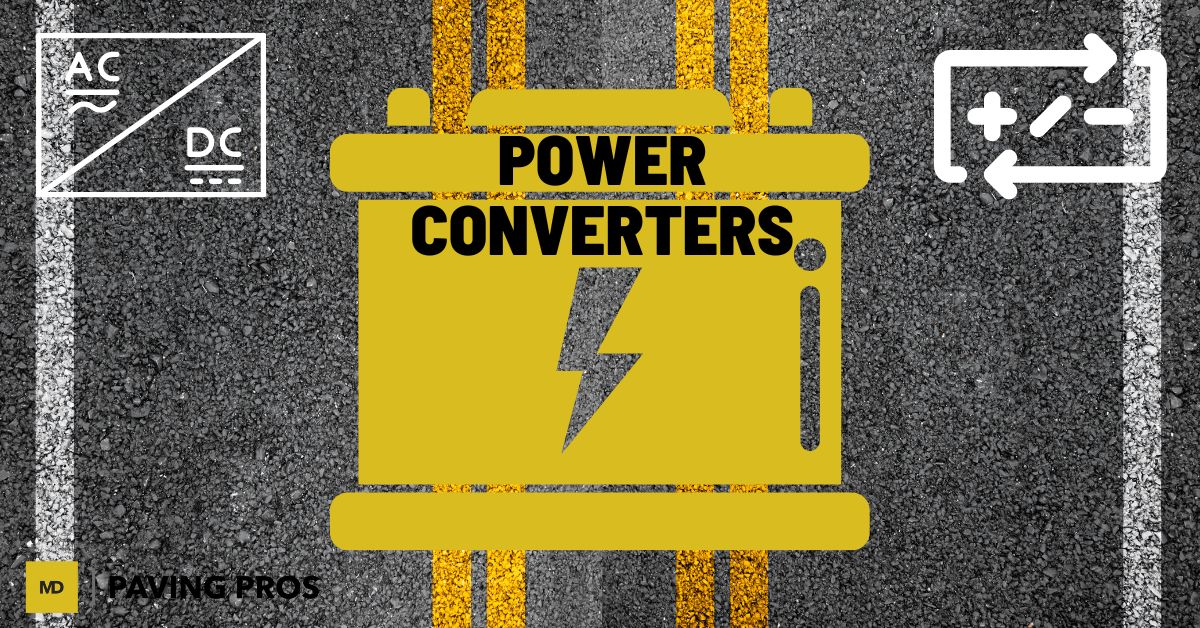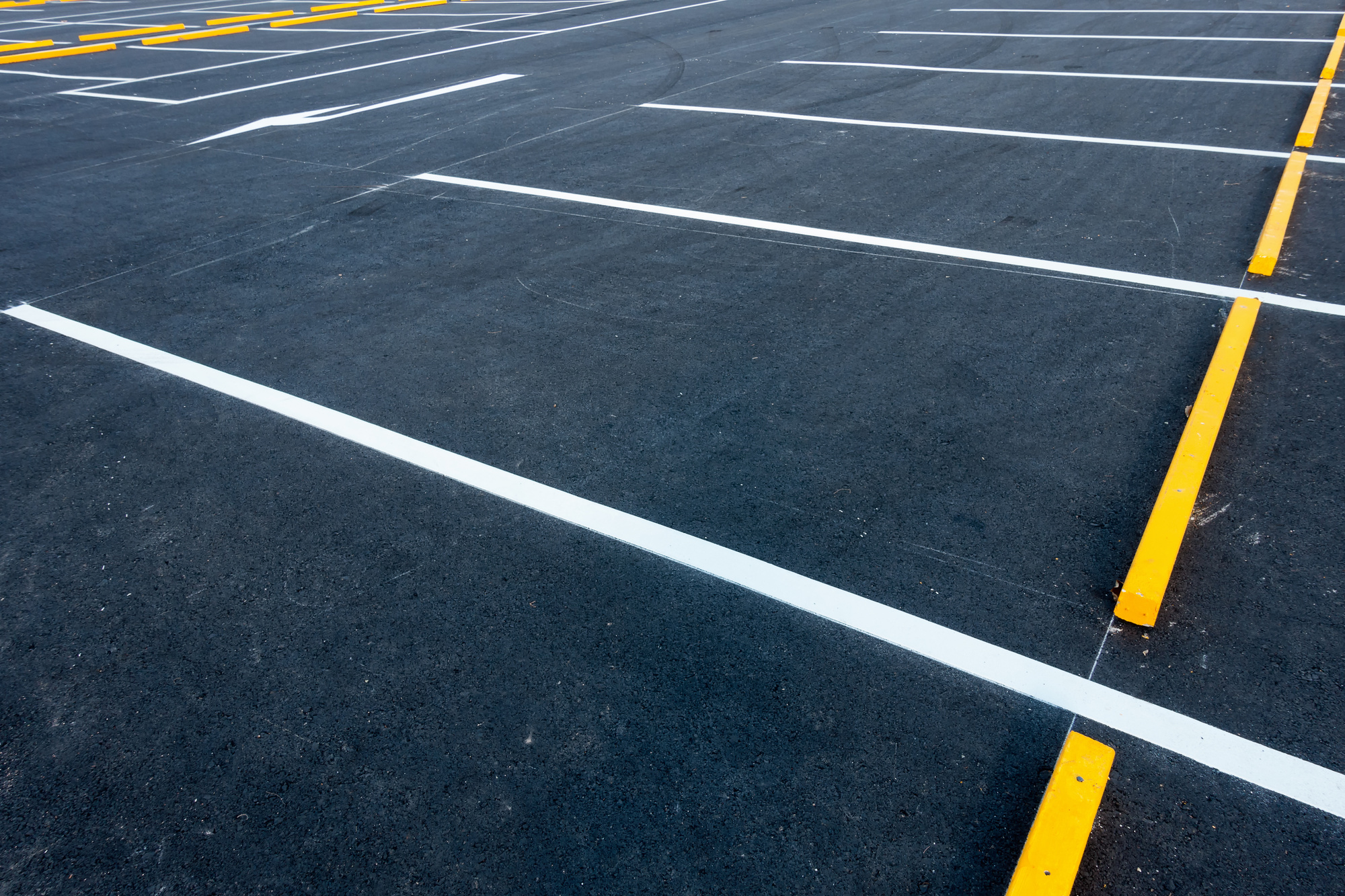There are as many as 2 billion parking spaces in the United States. If there’s one thing Americans expect, it is convenience and easy access to businesses.
Are you wondering “how much does it cost to build a parking lot?” Read on for a full explanation of the costs to build a parking lot.
What are the Costs to Build a Parking Lot?
There are various factors that impact how much it costs to build a parking lot. Most companies will give you a cost per square foot or per parking space. But, in order to get that quote, an estimator will have to perform a complete evaluation, explain the options and then give you a quote.
Generally speaking, small parking lots (in the ballpark of 25,000 square feet) will range between $3 to $7 per square foot.
You can expect to pay on the lower end of the range if you will have light duty car traffic. Heavy-duty truck traffic may cost you the top end of this range.
For asphalt paving of a large new parking lot, you might pay between $2.25 – $8.00 per square foot.
Sealcoating your parking lot is a smart way to protect your lot. The price for this can range depending on the type of product used to seal it, the state of your lot (clean or dirty) and the number of mobilizations needed. This cost can range from $40-$50 per square foot.
Example of Parking Lot Building Costs
The cost to build a parking lot will depend on several factors, including size and location. For example, installing a large asphalt parking lot in an urban area could cost upwards of $25,000 for installation alone. This amount does not include grading or excavation services, drainage, curbs and gutters, striping, or other features that may be necessary depending on the design and layout of the parking area. If the project includes more complex features such as landscaping or lighting systems, these costs can easily double the overall cost of installation.
In addition to construction costs, additional expenses may be required to maintain the property over its lifespan. These costs could include regular asphalt repair or resurfacing every five years to keep the surface of the lot looking new and free from potholes; sealing and painting stripes for continued visibility; preventative maintenance such as power washing; debris removal; landscaping upkeep; snow plowing; lighting maintenance; trash removal services; security patrols; and any other ongoing services needed to keep your lot safe and attractive. Depending on how much work is needed each year, these auxiliary costs can add up quickly over time.
Now, let’s look at the factors that impact the cost of a parking lot.
9 Factors That Impact the Cost to Build a Parking Lot
Many of the variables that impact the total cost of a parking lot are things that you can’t control.
For example, the pricing of asphalt and aggregate in your geographical area, the distance of your location to a supplier, and the cost of labor.
Some things you can control, however. These include the size of the parking lot, the scope of the project, and the expected amount and type of traffic.
Here are the major factors to be aware of.
1. Permitting
Your new parking lot must comply with all municipal, state and national codes. You’ll need to get permits and approvals before construction starts.
The permitting process is often one of the most expensive steps in the construction process and can range from hundreds to thousands of dollars. In addition to the costs of permits, there are other expenses that must be taken into consideration when constructing a parking lot.
Before any construction can begin on a parking lot, detailed plans must be drawn up and approved by the local municipality. During this step, an engineer or surveyor will need to assess the lot’s dimensions, taking into account all surrounding buildings, roads and sidewalks in order to determine a plan that is safe for all pedestrians and drivers. These plans must be submitted for approval through a local government permitting office with applications typically costing hundreds of dollars each.
In addition to these permits, there may also be additional fees associated with building a parking lot such as zoning variance requests or environmental impact studies. Before beginning construction it’s important to ensure that all local regulations are followed and that these fees are clearly outlined in order to avoid any costly surprises down the road.
Moreover, additional permits may also be required if special features such as electric vehicle charging stations or solar panels will be included in the design of your parking lot. If so, additional permits may need to be obtained from state or federal agencies in order to guarantee safety and quality standards are met throughout the entire process. Depending on the specifics of your project these fees could range from hundreds to thousands of dollars as well.
2. Parking Lot Use and Size
A school parking lot is quite different from a hospital or shopping mall lot. Apartment buildings and hotels and many other businesses have specific lot needs too.
The design, layout, and size of your lot needs to be right for your intended use.
3. Site Preparation & Accessibility
A big cost when building a parking lot has to do with preparing the site. This includes clearing the land and removing trees.
Also, you will need to have the soil tested to ensure that the ground can support pavement with the weight of cars on top.
Drainage and poor soil issues will raise your parking lot cost.
Is your parking lot in a big city or in a remote part of the country? Your location’s accessibility will impact your labor and possibly your product costs.
4. Paving Materials
The cost of paving materials for building a parking lot can vary significantly depending on the size, complexity, and type of material used. It is important to consider the longevity of the pavement when making that decision as well. Asphalt is generally cheaper up front but requires more regular upkeep and maintenance while concrete is more expensive initially but requires less in the long run.
For a standard-sized parking lot, asphalt can range between $1.75-$6.00 per square foot while concrete ranges between $3.00-$10.00 per square foot.
The size of your parking lot will also impact how much material you need, with larger projects requiring more material and labor costs associated with them. Additionally, some custom projects may require special additives or sealers which could further increase expenses.
When purchasing asphalt materials for paving, it is important to consider the type of aggregate blend used in order to maximize durability and performance over time. Asphalt typically involves mixing together a combination of crushed stone, gravel or sand with liquid asphalt cement – this mix produces a durable pavement that is able to resist wear from constant use such as vehicle traffic on driveways or parking lots. On the other hand, concrete involves using mostly Portland cement for strength and durability along with sand and gravel for texture.
There are also some cost-effective materials available that you could consider. Gravel, concrete, and asphalt are the most popular options. Gravel is inexpensive and perfect for temporary lots. Concrete has a higher upfront cost but needs less repair over the long-term.
Whichever material you choose, make sure that your estimate includes all the materials including aggregate base and any sealers.
A Side-Note on Asphalt Costs
It’s important to remember that although asphalt is typically cheaper up front than concrete in terms of materials, it requires more regular maintenance over time due to its sensitivity towards weather conditions such as excessive heat or cold temperatures. Additionally, certain regions prone to extreme weather can experience cracking at a faster rate which can lead to costly repairs down the line if not properly inspected & maintained regularly while opting for higher quality materials can help alleviate this issue altogether due to their improved resistance against wear & tear from harsh climates & climates with extreme temperature changes throughout the year.
5. Local Labor Rates
The cost of labor for contractors building a parking lot varies greatly depending on the scope and nature of the project. Generally, contractor labor costs range from $15 to $26 per hour, with most projects falling within the $17 to $25 range. These costs can also be affected by the location of the project and its complexity; for example, construction in an urban area will often require higher wages due to increased competition for workers. Additionally, the cost may vary based on whether the contractor is responsible for providing their own materials or if they must purchase them elsewhere.
In some cases, contractor labor cost estimates can also be impacted by local union rules that may regulate how much contractors are allowed to charge or how they are expected to pay their employees. It is important that contractors familiarize themselves with such regulations as they can have a significant impact on their overall pricing structure. Additionally, it may be necessary to factor in pre-existing agreements with unions when evaluating bids from different contractors since these may set higher rates than those typically found in nonunion settings.
Labor costs for parking lot construction can also be affected by overhead charges related to renting equipment and machinery that is needed for large-scale projects. In particular, heavy machinery such as cranes and bulldozers can significantly increase operating expenses as people who operate this machinery typically cost more per-hour. Furthermore, depending on whether subcontractors are hired for specific tasks or if additional workers are needed beyond those supplied by the primary general contractor, these costs must also be taken into consideration when estimating total labor costs.
Finally, additional fees associated with payment processing and taxes may also apply when calculating overall labor expenses during parking lot construction projects. To ensure accuracy in budgeting these extra fees should not be overlooked as they can drastically affect a company’s bottom line if not accounted for ahead of time. All told, there are many factors that go into determining the true cost associated with hiring contractors to build a parking lot and it pays dividends to consider all costs before making a final decision on who will lead the project moving forward.
Other factors that impact labor costs include the availability of equipment, the number of crew members needed and the size of your lot.
6. Important Markings (Lot Striping) and Sign Installation
You will need to mark each spot in your lot. Then there’s the fire lanes, accessible spaces, crosswalks, and loading zones that all need to be stenciled as well.
The cost of parking lot striping depends on a variety of factors including the size of the lot, the number of stripes needed, and any additional features that are requested. On average, the cost to stripe a full-size parking lot can range from $500 to $2,000 or more. Smaller lots can be striped for as little as $200.
Several different materials can also impact costs. Oil-based paints are longer lasting and typically used for larger projects due to their durability; however, they require specialized equipment for application and come with an increased environmental hazard. Water-based paints are easier to apply, have a lower environmental impact, but require more frequent reapplication.
For complex projects such as parking lots or traffic lines in large facilities like shopping malls or universities, it often requires hiring specialized contractors who have access to detailed blueprints and plans of the facility in order to ensure accuracy and precision. In these cases, the price to stripe a single space may reach over $50 per space depending on complexity.
On top of paint and equipment costs, other fees may be included in some projects such as labor costs if manual labor is required for preparation or maintenance; additional supplies such as cleaning agents; rental equipment and tools; heavy machinery usage fees; permits; consultation services; storage fees; waste removal fees; signage creation costs; quality control inspections prior to project completion; warranty fees for future maintenance concerns after project completion; and travel expenses if workers must be transported offsite for work.
Traffic signals and speed limit signs are necessary for safety in your parking lot. All the signage you will need (and the hardware) should be included in the contractor’s quote. Be sure to confirm that this is the case.
7. Lighting
Check with your local municipality about the number of lights and the type of lighting that you need for your parking lot. Though expensive, light poles are important for the safety of your customers (and in order to be compliant).
The costs of lighting and light poles for parking lots can be substantial, depending on the size and scope of the lot. Generally, larger lots require more complex systems with higher wattage bulb fixtures, which can drive up the cost significantly. Of course, there are other factors that need to be taken into consideration as well. For instance, the cost of materials for light poles will vary depending on where they’re purchased from and what type of pole is required for a specific site. Some poles may require additional protective coatings or finishing treatments to ensure durability and longevity in outdoor settings. Installation costs should also be factored into the overall cost.
These often include labor charges for setting up and assembling each component of the system, including running conduit or wiring to connect light fixtures to an electrical source. Depending on the complexity of the system, this could add even more to total cost than just equipment expenses. Maintenance expenses should also not be overlooked when determining total cost; this includes replacing faulty parts or bulbs as needed, along with periodic inspections by certified technicians to ensure safety compliance codes are met as per local regulations.
8. Safety and Security
Parking lot safety needs to be a top priority. Around 500 deaths happen each year in parking lots where either drivers or pedestrians are killed.
Safety items like surveillance cameras and barrier gates can ensure your customers are safe.
Proper safety and security features help prevent unfortunate accidents. They also protect you against being held liable for the death or injury of anyone on your lot.
9. Parking Lot Maintenance
Remember, when your parking lot is completed, that is not the end of your costs. You need to budget for regular maintenance including cleaning, leaf and snow removal and refreshing paint lines.
Then there are the repairs that will be needed from time to time. Though these costs aren’t usually paid upfront, it is a good idea to keep them at the forefront of your mind so you can fully understand the price of your parking lot.
How Much Will It Cost?
We hope this article on the various costs to build a parking lot has given you a good idea of pricing for your new lot.
Contact us to schedule a free consultation on any type of construction project for your business.






